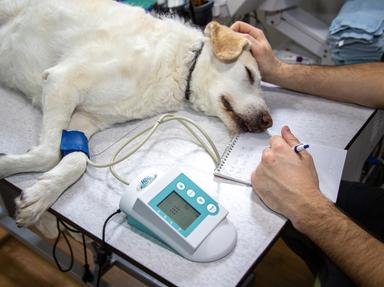Quiz Answer Key and Fun Facts
1. The two types of renal failure are chronic and acute.
2. What are the funnel-shaped tubes in the kidneys called?
3. When kidneys fail they can't adequately clear the blood of certain toxins. Which two toxins, as a result of the kidneys failing, are usually abnormally high in the kidneys?
4. If a dog ingests a teaspoon of ethylene glycol-based antifreeze, this cannot kill or injure the kidneys
5. To determine if your dog has renal failure, which two tests should be done at least once a year?
6. Which of the following is a sign of renal failure?
7. A tendency to bleed or bruise easily is a sign of renal failure?
8. Which of the following is not a sign of renal failure?
9. A special diet can help a dog who has renal failure live longer.
10. Which of the following is a sign of acute renal failure?
Source: Author
JuniorTheJaws
This quiz was reviewed by FunTrivia editor
crisw before going online.
Any errors found in FunTrivia content are routinely corrected through our feedback system.
